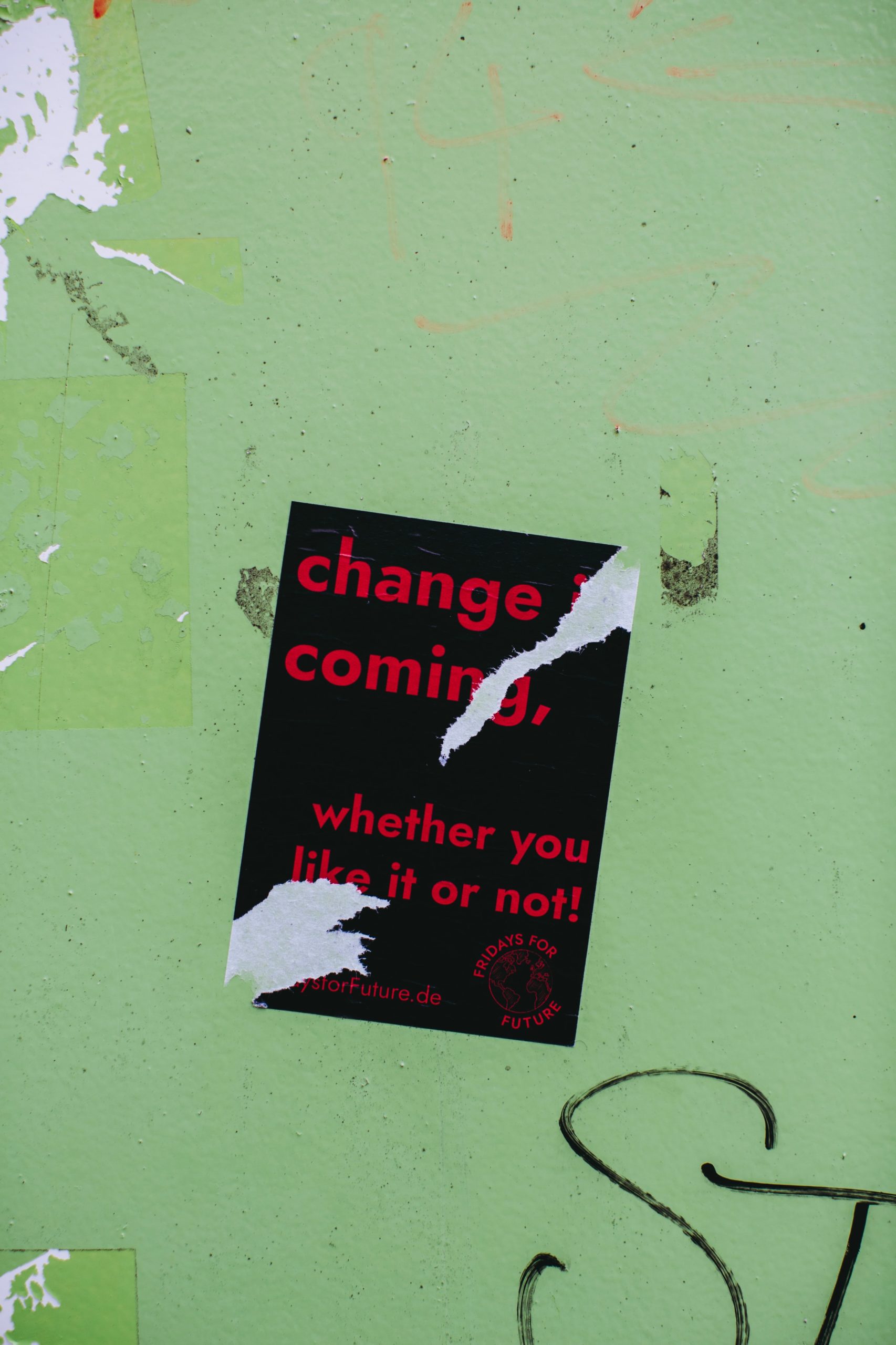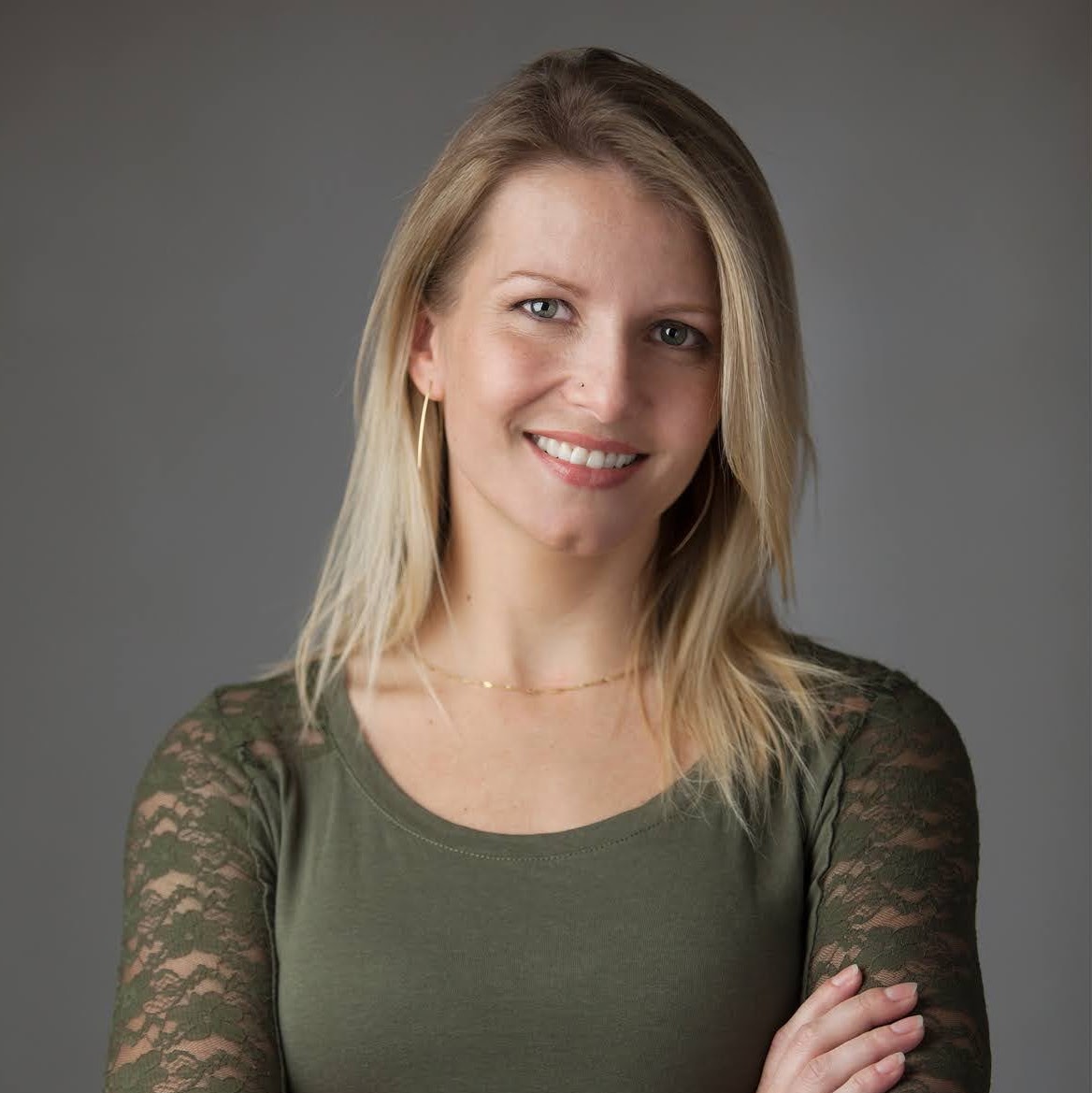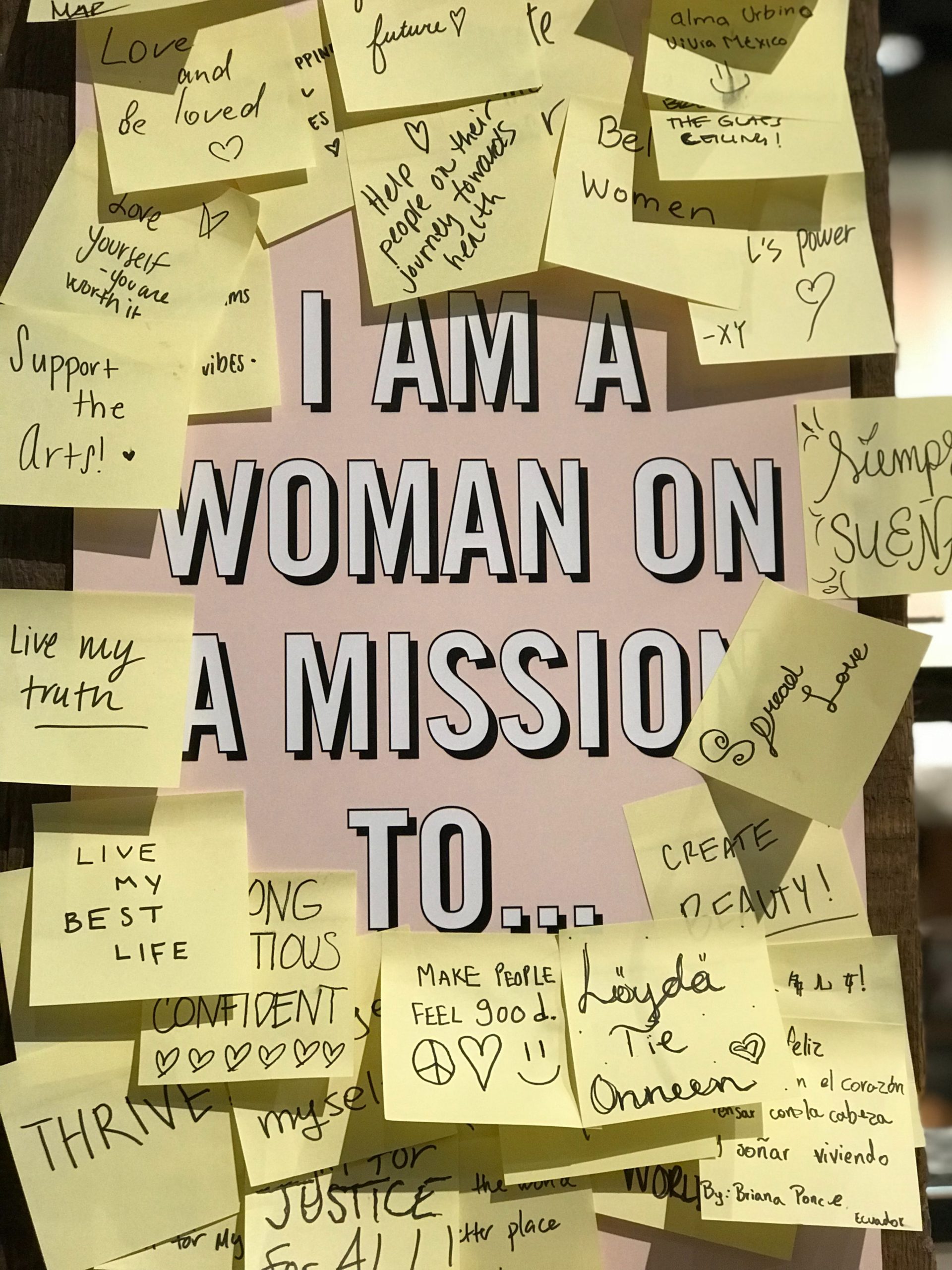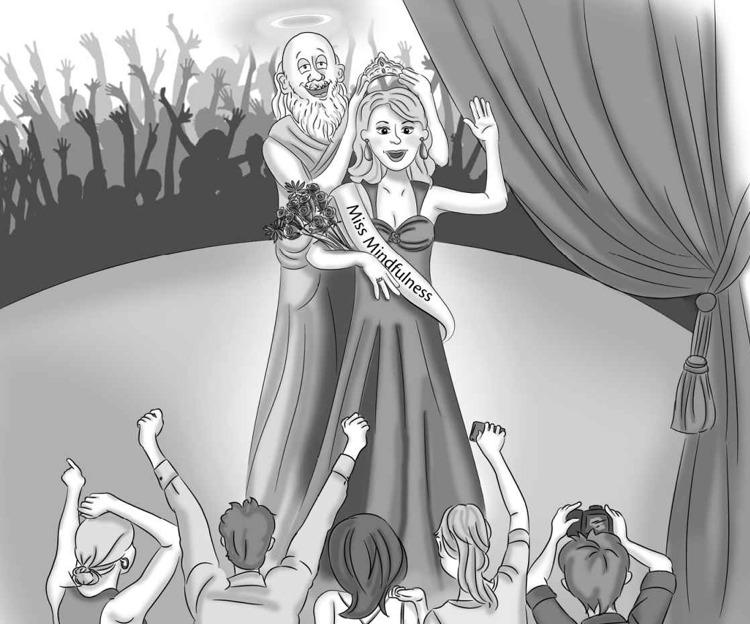
Career Coaching, Change, Professional Development
Are you at a Career Turning Point? Ignore it at your peril.
Lately I’ve been feeling restless, which is usually a sign that something deeper is going on if I take the time to look under the surface. What’s started to emerge upon deeper reflection is that I’m entering a new cycle of change as it relates to my career. I find this interesting because the way we tend to view career is linear. “I need to figure out what my calling is and then I’ll be happy.” We frame the dilemma as an if, then statement and then are surprised when the old formula no longer works. Things start to feel stale, but we’re not sure why. We’re filled with an emptiness, a longing we can’t quite understand. We distract ourselves with more work, social activities, relationships, we find other ways to numb. But the feeling is still there. The answer to this dilemma lies in the fact that we change and grow and evolve. And because we do, we can’t stay in one static place. Any successful career skillfully navigates several turning points. These are sometimes referred to as an existential crisis, or a career crisis, or as we say in the South, a come to Jesus moment. But the bottom line is that transition is normal and we need to learn to lean into it rather than push it away. If you’re wondering what these turning points are once you’ve entered the working world, I can summarize them. Ignore one at your peril, it will find a way of re-emerging louder and more painfully than ever before. The main turning points of working life: Age 30 Assessment (age 28-33) No matter what direction we’ve launched ourselves in post college, we tend to do some reflection and assessment around age 30. What has been working about the course I chose? What hasn’t? What do I want to achieve in the next 10 years? How will I do this? What values do I need to pay attention to? What interests? What are my family goals? How am I balancing work and family? What would be most meaningful to me as this point in my career? What could I add to my life to make it more interesting and meaningful? Midlife Transition (age 38-45) This transition can be one of the most important in a person’s life. And if we ignore it and bury the feelings that often accompany this transition point, it can be a disaster. The proverbial mid-life crisis will often ensue. Divorces are common at this stage. Many people, confronted with the feelings of stress, anxiety and depression that often accompany this stage, choose avoidance. But these feelings don’t really go away, they just go underground. The True self, our soul essence, our spirit – whatever term you chose to use, still needs expression. How do I feel about my family? How do I feel about work? What changes would I like to make to achieve a better balance? How connected do I feel to others? What excites me […]
May 31, 2024
|
4.8 min read

Change, Leadership, Well Being
The Cycle of Change
The other day I decided to step down as an organizer for a women’s group I founded several years ago. The decision was a long time coming and was bittersweet. It was a fantastic experience, and yet intuitively I knew it was time to move on. I think years ago I would have held on longer and pushed myself to muddle on. Quite often the things we take on become a big part of our identity. Sometimes the hardest decision to make is when to let go. The 4 Cycles of Change And this got me thinking about the cycle of change, which I often refer to as a deck of cards. And when you think about how a game plays out, there are 4 phases: The Shuffle Phase of Change Shuffle – in this phase we’re wondering what game we want to play. We’re thinking about the options that might be on the table. Perhaps we’re thinking of transitioning our career or learning something new. There’s often excitement, but there’s often a lot of fear, a lot of trepidation. What if I make the wrong choice? What if I make a mistake? What if it doesn’t work out? What if I embarrass myself? We may find this phase to be exhilarating if we’re focused on all the possibilities and opportunities that may manifest, or our inner saboteur may be rearing its ugly head. Or both at the same time. We may find ourselves paralyzed by inaction as we are overwhelmed by the possibilities. The Deal Phase of Change Deal – in this phase we’ve chosen the game we wish to play, and we start to signal our intent. We are making our first move, so to speak. A lot of excitement again potentially, and a lot of potential for inner turmoil. But the difference is we are now committed. We are taking action, the ship is starting to move in a certain direction, although the path may not be completely known. In this phase we might feel quite unsteady, some days we might feel like we’ve made great progress and other days maybe we feel we’ve gone backwards. Our emotions will most likely be a mixed bag – there will be wins and successes as we start to make our moves, and there will be setbacks. The choice of how we ultimately respond to these is up to us. The Play Phase of Change Play – in this phase we are all in. We’re playing to win, to succeed, we’ve defined what success looks like. We know the drill, we can handle the inconveniences that may come along the way. Of the 4 cycles, this is the one that is the most stable. The problem with the play phase is that sometimes we stay too long. We may have a tendency to overplay our hand. We might find ourselves eventually becoming bored, stagnant or lacking purpose or meaning in our endeavor. Maybe we crash and burn. But we hold […]
November 4, 2022
|
4.6 min read

Career Coaching
Career Transition Success Story – Part 2 – Forget the requirements, apply anyway!
In today’s blog we are continuing the story of Nora Pirsch, who recently transitioned from a yoga instructor to a UX designer. Nora credits her strong mental attitude in being critical in making the transition! Nora Pirsch is a User Experience designer that specializes in human connections. The desire to improve people’s day to day lives, has been a theme throughout her adult life. She has spent 15 years of her life mastering her craft as a yoga instructor and now she has begun her path to improving her skills as a UX designer. Nora has always enjoyed a challenge, from facing stage fright to showing extreme patience with her naturally fermented bread baking, she never goes down without a fight. When she is not interviewing users, you can find her baking fresh pizza and going for long walks with her dog Finch. Shelley: Let’s talk about of interviewing and as it relates to resiliency. You told me it was something like 80 jobs you applied to, and I was blown away by that and just how resilient you are. How did you keep yourself mentally strong, considering that there were probably a lot of setbacks in this process for you? Nora: I had amazing support from school from colleagues that I went to school with, even from people that my mom reached out to that were in the tech industry, and they would tutor me, and find people to help me walk along the path. That’s step number one. And then, part of the after-graduation program was applying to 10 jobs a week, that was the criteria. So that was very difficult in the beginning because I was spending too much time on writing pretty and elaborate cover letters. I really recommend getting a very basic template, and then just add two to three sentences make it a little bit more directed at that company. And that’s it because you will wipe yourself out writing those cover letters. And honestly, what is it 92% Of the companies don’t look at your cover letter until you’ve gone through the ATS. Shelley: I normally tell candidates, don’t even submit one unless they specifically asked for it. Because a lot of times they don’t even get read. Create a Process – Work Smarter Not Harder Nora: A lot of the times they don’t, but my school did encourage it. Because if there’s a candidate that if you’re side by side with, and one has a cover letter and one doesn’t, they’re going to go with the one that paid a little bit more attention. I came up with a simple template and started applying to more jobs. And then I closely shadowed a couple of the students in my class that were very big go getters, and we became quick friends. She told me what she was doing and her tactics. And I was asked, “Can I can I steal that from you?”And she said, “Oh my gosh, of course.” Forget the requirements […]
March 16, 2022
|
9.2 min read

Career Coaching
Career Transition Success Story – Nora Pirsch – From Yoga to UX Design! (Part 1)
Nora Pirsch Nora Pirsch is a User Experience designer that specializes in human connections. The desire to improve people’s day to day lives, has been a theme throughout her adult life. She has spent 15 years of her life mastering her craft as a yoga instructor and now she has transitioned her career to UX design. Nora has always enjoyed a challenge, from facing stage fright to showing extreme patience with her naturally fermented bread baking, she never goes down without a fight. When she is not interviewing users, you can find her baking fresh pizza and going for long walks with her dog Finch. You can connect with Nora here: www.norapirsch.com Part 1 – Nora’s career transition story: Networking and Figuring Out What You REALLY Want Shelley: Nora, share with me a brief history of your career up to the point you made your career transition. Nora: I was a full-time yoga teacher for about 15 years, I am still yoga teacher, but very, very part time now. And I really got into that because I wanted to travel a lot. And I wanted something that helped people improve themselves and feel better. So it seemed like a really good fit for me. And I still love teaching, I’ll never stop. It’s something that’s very close to my heart and part of me now. But about 10 years into it, I knew that I It wasn’t sustainable, what I was doing, teaching 10 to 12 classes a week, and just barely making paying the bills was really taking a toll on me. And it was hard because it’s something I love to do. But it wasn’t fulfilling me in other ways. So I knew I needed something different. I didn’t know what, so I was very, very gingerly putting my feelers out there for several years. And when COVID hit, I reevaluated what was important to me where I want to focus my time that I have on this amazing Earth. I just started asking questions, I started asking people, what do they do for a living. I really think a huge part of transitioning in general is reaching out and hearing other people’s stories, how did you get to where you are now, and those connections are invaluable. When transitioning you can get a lot of support that way too. And you can get a lot of leads that way into new jobs. CAreer transition tip: the power of Networking Shelley: Absolutely. You’re kind of alluding to informational interviewing, networking. And sometimes I have clients who are grappling with a career transition that really hesitate with that. They get nervous, they don’t want to do it, their Gremlin/Inner Saboteur gets activated by the whole thing. What if people say no? Nora: I’ve always been kind of a natural connector. I’ve always been pretty good at that naturally. But what I would say is, what have you got to lose? And what do you have to gain? Looking at those two sides, […]
March 9, 2022
|
11.5 min read

Career Coaching, Leadership, Life Direction and Purpose
What is a personal branding statement? Why do I need one?
There’s a lot of hype at the moment about knowing your personal brand. Let’s break it down – what is a personal brand, and why is a personal brand important in career search as well as managing your career? What is a personal branding statement? When I coach career and leadership coaching clients, we often talk about a personal brand – a simple 1-2 sentences that speak to: 1) your unique gifts and 2) how you add value. Notice I put the emphasis on simple. I have noticed there is a tendency on resumes these days to put a few objective lines at the top of a resume and throw in every buzzword known to man, in the desperate hopes of seo optimization and hoping that something you say will resonate with someone. “I seamlessly utilize my core strengths of teamworking, project management, financial acumen and strategic thinking to empower global organizations to create cost beneficial forward-thinking solutions on the cutting edge of digital transformation that drive efficiency, effectiveness and create a happier and healthier workforce.” This doesn’t work, just in case you were wondering, and often recruiters dismiss this as unnecessary fluff. The paragraph long sentences also read like something out of a Nathaniel Hawthorne novel, and I didn’t like the Scarlet Letter the first time I read it. “I utilize my project management skills to help organizations deliver efficient, effective, digital solutions.” Much better – easier to read, easier to comprehend, and easier to tell the story of YOU. Why is a personal brand important in career search? Your resume then should speak to this statement. Imagine you’re telling a story. And the personal branding statement is the 30,000 foot up airplane view of you and your career. Your resume should then read to explain how you have managed to do this for the organizations that have been graced by your amazing presence. Consistency is key, and it’s super helpful in getting someone to remember you and what you bring to the table. Besides, human beings are natural story tellers. We like them, it’s our way of summarizing things and making sense of the world. Why is a personal brand important in managing your career? But I’m not switching jobs, so what does this matter? Does this mean I don’t need to worry about a personal brand? Wrong again. Because in your day job, you’re always marketing yourself, always selling yourself, for that next all-important project, that next promotion. And if you’re not the guy or gal on management’s radar for that particular role based on what they know about you, you’ll get overlooked. Ask yourself this: How do you want to be perceived in your organization? What do you want to be known for? And then think about: How you are actually perceived in your organization? What are you known for? Better yet, ask a few trusted souls to answer those last two questions on your behalf. You might be surprised at the answers you get. If […]
February 10, 2022
|
3.5 min read
career transition
Shelley Pernot, otherwise known as the Irreverent Guru of Mindfulness, muses on life, leadership and everything in between. Your one stop shop for career tips, leadership tips and daily inspiration!

It was a privilege to work with Shelley as my leadership coach! The process was structured and yet flexible enough to meet needs as they arose. Shelley helped me to grow, learn more about myself, and to really achieve what I set out to accomplish. We worked on planning, navigating a promotion successfully, and so much more! I experienced many successes as a result of working with Shelley, she has great resources, knowledge, and really helps with setting the foundation to this coaching work. She won’t let you down!
Stacy Campos
Regional Coordinator
Having the opportunity to have Shelley as my Leadership Coach could not have come at a better time in my career. I was recently promoted to CFO and was new to the Senior Management Team. Shelley helped me navigate joining the team as well as helped me to determine who I wanted to be as a leader. The Leadership Circle Profile helped our team to discover our blinds spots and to be able to understand each other better. Working with Shelley not only has affected my professional life in a positive way, but also my personal life. She helped me take leaps and has given me the resources to continue this journey of self-improvement. If you’re looking to find more about yourself and how you can be the best version of yourself, I highly recommend working with Shelley.
Kristen Spedale
CFO
I have been working with Shelley for the past 2 years on my leadership development journey. What I thought would be a straight line, I soon learned with Shelley’s guidance, was a winding path with several ups and downs along the way. Shelley supported me as I took a deep dive into my professional and personal history and learned how it affects my approach and my perceptions. She helped me to slow down and recognize certain behaviors and understand that I can pivot in the moment or try again next time. Ultimately, my work with Shelley turned out to be so much more than what I expected. Her approach to coaching was exactly what I needed.
Nicole Naassan
Senior Vice President, Consulting
I’ve learned more about leadership in the past six months working with Shelley than I have in my 10+ year career. She is an incredible coach with many tools in her toolbox. The guidance and mentorship I’ve received from Shelley has been life-changing. She will challenge your limiting beliefs and inspire new ways of thinking.
Margaret Soltis
Creative Director
I highly recommend Shelley if you need a coach, thought partner, and guide as you consider the next steps in your career. She provides practical tools and advice to help launch your career exploration, but most importantly, she is an expert at helping you cut through the noise of your limiting beliefs. At the end of our time together, I had a much clearer vision of what I wanted in my life and a plan to make it happen. My only regret is that I didn’t find her sooner!
Elizabeth Magnus
My career coaching sessions with Shelley have brought me back to living. It’s been contagious, spreading throughout my personal and professional life. I now have the building blocks I need to continue setting healthy boundaries, the freedom to show up as my authentic self, and an adaption of a growth mindset that has allowed me to make bold decisions and try new things. I’ve discovered that there’s always another way and how to eradicate barriers that lead to tunnel vision. These sessions with Shelley have been a great gift and have given me the momentum I need to continue the journey to be my best self.
Teasha Houston
Art Director
It is amazing to think where I was only 10 months ago when I first started working with Shelley and where I am now. Not only professionally but mentally and emotionally. Shelley helped me navigate out of an unhealthy work environment by challenging me and asking me those tough questions we never seem to ask ourselves. What are the values of a true leader? How do those values align with my own? Shelley challenging me and guiding me through some of those tough questions is what led to my epiphany and me having the courage and confidence to leave an environment that threatened my well-being. She taught me how to become more self-aware and self-compassionate. Reminded me to be kind even when the world would understand if I did otherwise. And the biggest one for me, shutting down that crazy inner voice (we all have it!) and replacing it with being present. Shelley has armed me with tools that I will carry with me for a lifetime. Tools that will help me to continue to grow and learn. Life can be hard but working with someone like Shelley does make it easier. She will help you navigate the good and the bad and you’ll learn so much about yourself in the process.
Michele Feria
Director of Marketing
First of all I would like to say that I would recommend Shelley to anyone needing career guidance. As my counselor Shelley helped me transition my career from bartending to Tech Sales which was a difficult and scary transition for me. From the start Shelley was fantastic. Initially I had no idea of which direction I wanted my career to go, I just knew I wanted it to go somewhere else. Shelley was so kind and patient as she helped me figure this out, and gave me a step by step guide on how to explore my options and make an educated decision. She also helped me assess my skill set which played a large part in directing my energy. I landed a great job within days of my final session with Shelley, and now I’m month 3 I am absolutely loving it and doing very well. It was the perfect job for me and Shelley was the one that got me there. Working with Shelley was one of the best decisions I have ever made, she literally changed my life and I am so much happier for it.
Russell Boxer
Account Executive
